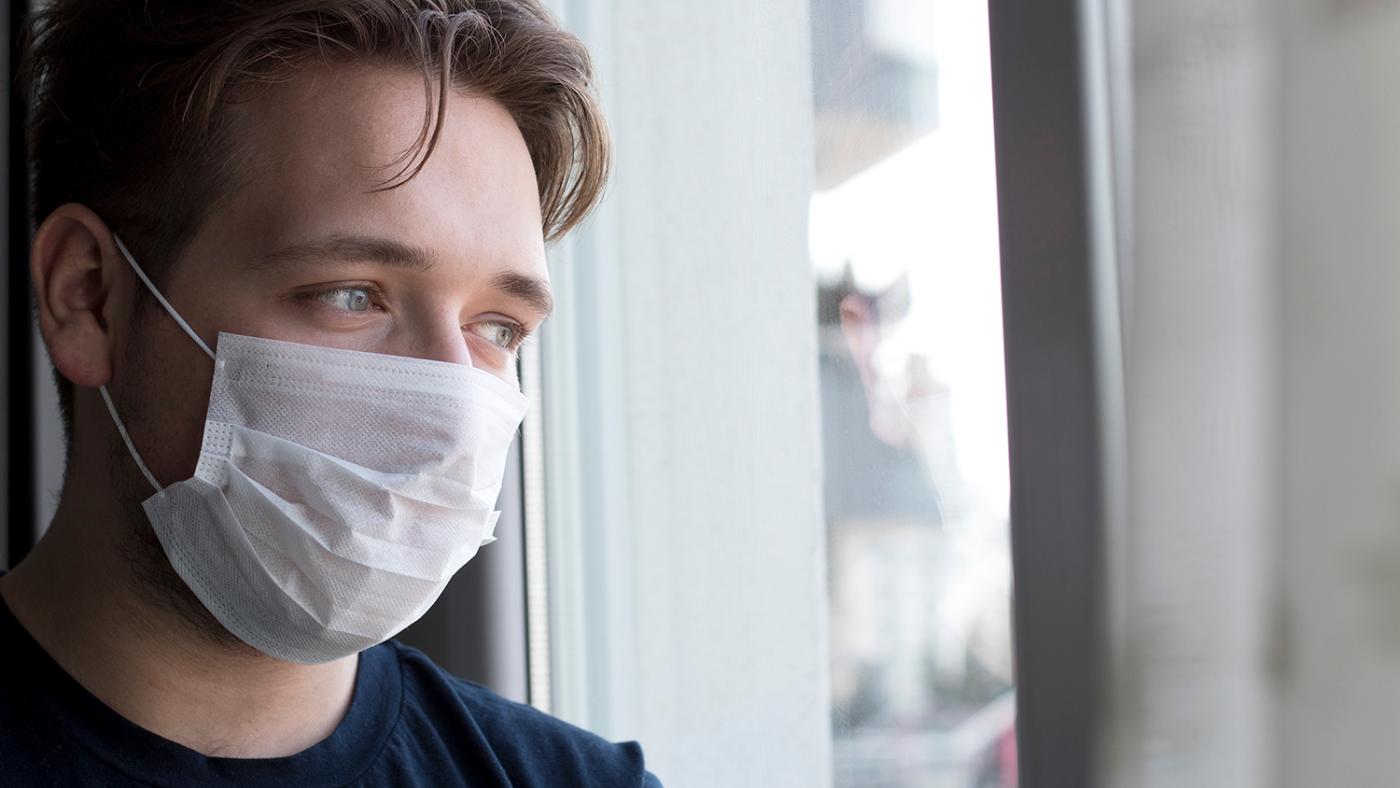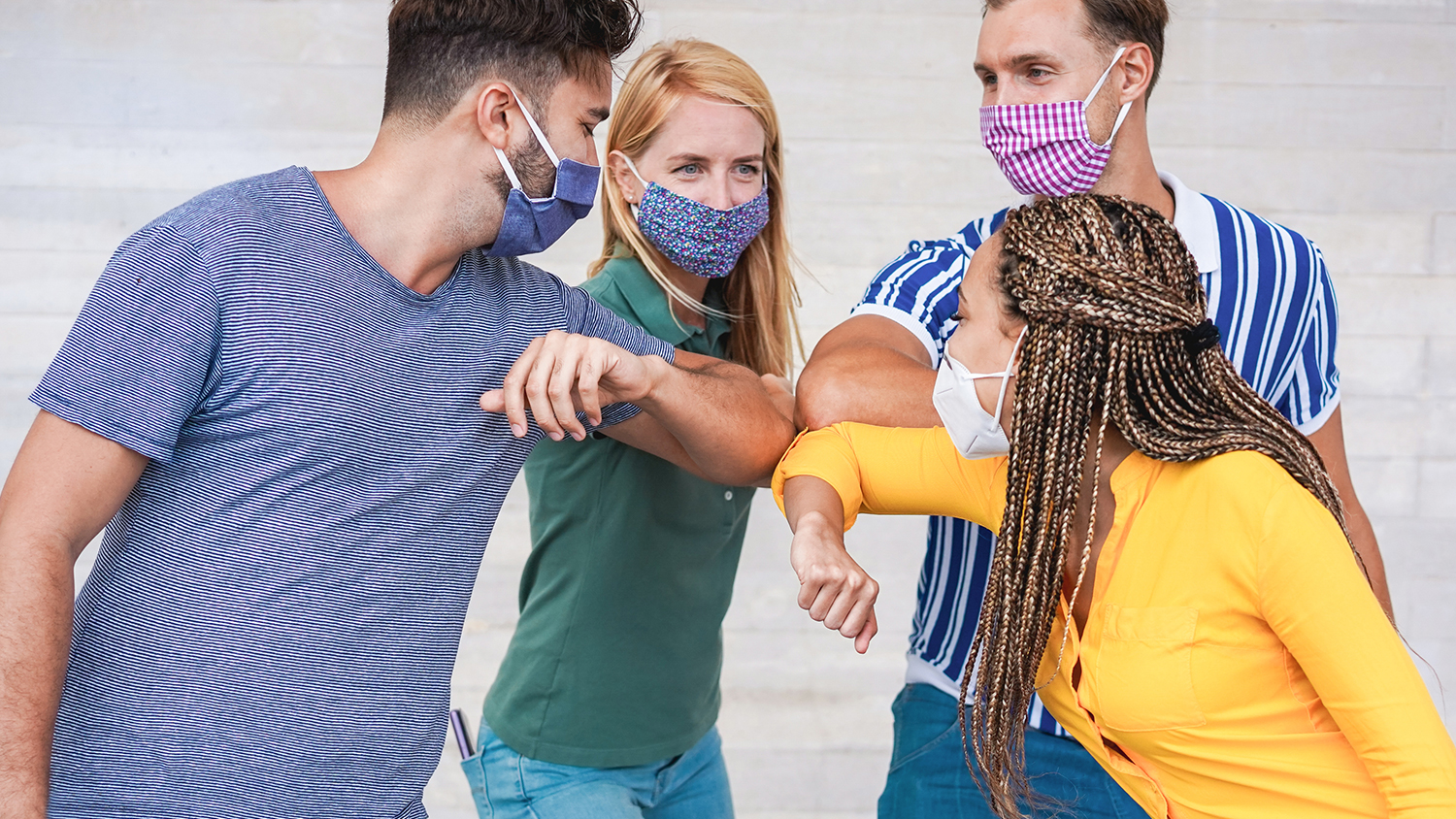Why are we so sick and tired of Covid?

According to Aarts, in general, human beings don’t like changing things in their lives unless there are good reasons to do so: for example, we may move to another city because we want to study there. But the measures against the coronavirus have been forcing us to adjust our behaviour repeatedly against our will. “The sense that it’s not your own choice evokes resistance. This constant adjusting, when it’s not something you’re eager to do, breeds mental stress. It fatigues people.”
But that's not all. The measures also affect people’s autonomy, says the behavioural scientist. “When you limit people’s autonomy too much, they end up distancing themselves from their behaviour. It affects their sense of responsibility. People become indifferent when things are constantly imposed on them.”
Lack of inspiration 
Aarts studies how people form and change their habits. Habits are important because they help insure we do things on autopilot, which frees up space in our minds for other things that matter to us.
The Covid-19 measures conflict with our habits as they discourage some types of behaviour, such as exercising at the end of the day, spending your Friday night in the bar, or going out until early in the morning.
“Research shows us that it takes quite some effort to repress our thoughts and behaviours. If you do succeed, the new situation required you to perceive the things you're still allowed to do in your free time differently", explains Aarts. “The government is basically leaving things up to the people, like 'solve it yourselves'. They should offer more alternatives. It's such a missed opportunity that they’re not doing so.”
Online drinks
In the beginning of the pandemic, people came up with a myriad of creative ways to spend their free time and keep their social lives going. Board games were more popular than ever and people started having beers in front of their laptops instead of at their student associations. But those alternatives have lost their luster by now.
“Doing a pub quiz on your laptop is fun -- once. But it can't replace social interaction. When you close cafés, restaurants and cultural institutions, you affect immense social structures. It’s not sensible to change that every six months or shut them down completely. The government should think about that very carefully.”
The same creativity that was used to come up with online activities in the beginning of the pandemic is now being used to finding out ways to get around the rules, or have fun in ways that are barely allowed. Forcing bars to shut their doors only means that students will throw parties at home. "people feel like they need to compensate for the restrictions. Not everyone will abide by what the government tells us to do. Behind closed doors, people don't always stick to the maximum number of visitors, thereby keeping up with their social habits.”
Yo-yo
The professor says it gets harder and harder to adjust our behaviour each time new measures are announced. After all, it requires getting used to new habits and finding new weekly routines. But people’s behaviour is crucial in the fight against Covid. Sticking to the basic rules works.
“It becomes nearly impossible for people to keep stepping over that threshold and starting over. Certain things are forbidded at one moment and allowed the next, and soon after they're banned again. These yo-yo policies only confuse people. They get to the point where they’re simply done with constantly having to change the way they think and act. All that switching back and forth makes people tired.”
Moreover, Aarts explains that people need a certain environment to make choices and stick to routines. It’s easier for students to follow what’s being said in a lecture when they are in a classroom, compared to when they’re listening to it from home, with their webcam turned off. They have to resist all sorts of distractions. “When the context changes, you have to adapt again. At first, students had to attend their classes from home. Later on, they were allowed back on campus. That’s destabilising.”
Human nature
Some of our social habits are simply the result of evolution, says the professor. We tend to search for social contact and affection, we want to be near others. Sometimes, it’s also hard to stay away from others for practical reasons. “After all, our cities are pretty crowded”.
Furthermore, habits are ingrained in our culture. Shaking hands, for instance, is something we have been conditioned to do when we meet someone new, so it’s almost a reflex. Dutch Prime Minister Mark Rutte is the perfect example: he shook virologist Jaap van Dissel’s hand at a press conference right after stating that people should not shake each other’s hands anymore.

Although social distancing goes against our human nature, it is something that can be taught, according to research conducted by Aarts and his colleagues. “In twenty weeks, people internalised keeping 1.5 metres of distance from each other. The more you do it, the less you have to think about it, so it becomes a habit. When you enforce certain behaviours for a longer people of time, people can certainly adapt," states Aarts.
But they can also easily bounce back to their old ways. Remember the walking routes and stickers telling people to keep their distance? They were removed from the sidewalks and buildings, but the 1.5 metre-rule was reinstated shortly afterwards. “As soon as you remove a necessity and change the environment once more, people bounce back to the way things were,” explains the professor. “If you look at the current situation, you'll see that the practice of keeping 1.5 metres away from each other is basically gone, despite the fact that we should be observing that rule. It’s so tricky to keep our distance.”
In order to guarantee the continuity of our behaviour, it would be better to keep certain adjustments in place for a longer period of time. “It wouldn’t be a bad thing to leave the signs and stickers up. You don’t necessarily have to follow what they say, but they more or less stick to your brain subconsciously, making you think about them. That increases the chance that people do as the stickers say anyway. Now, people have thrown out the way the environment was designed, but everyone knows the Covid crisis is far from over. That’s a shame, because now we have to start from scratch all over again.”